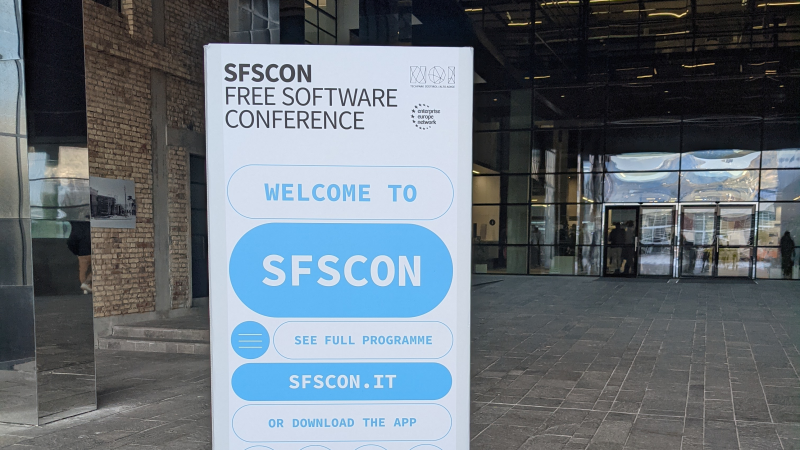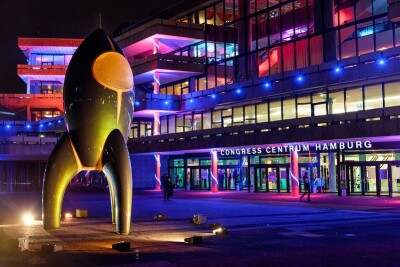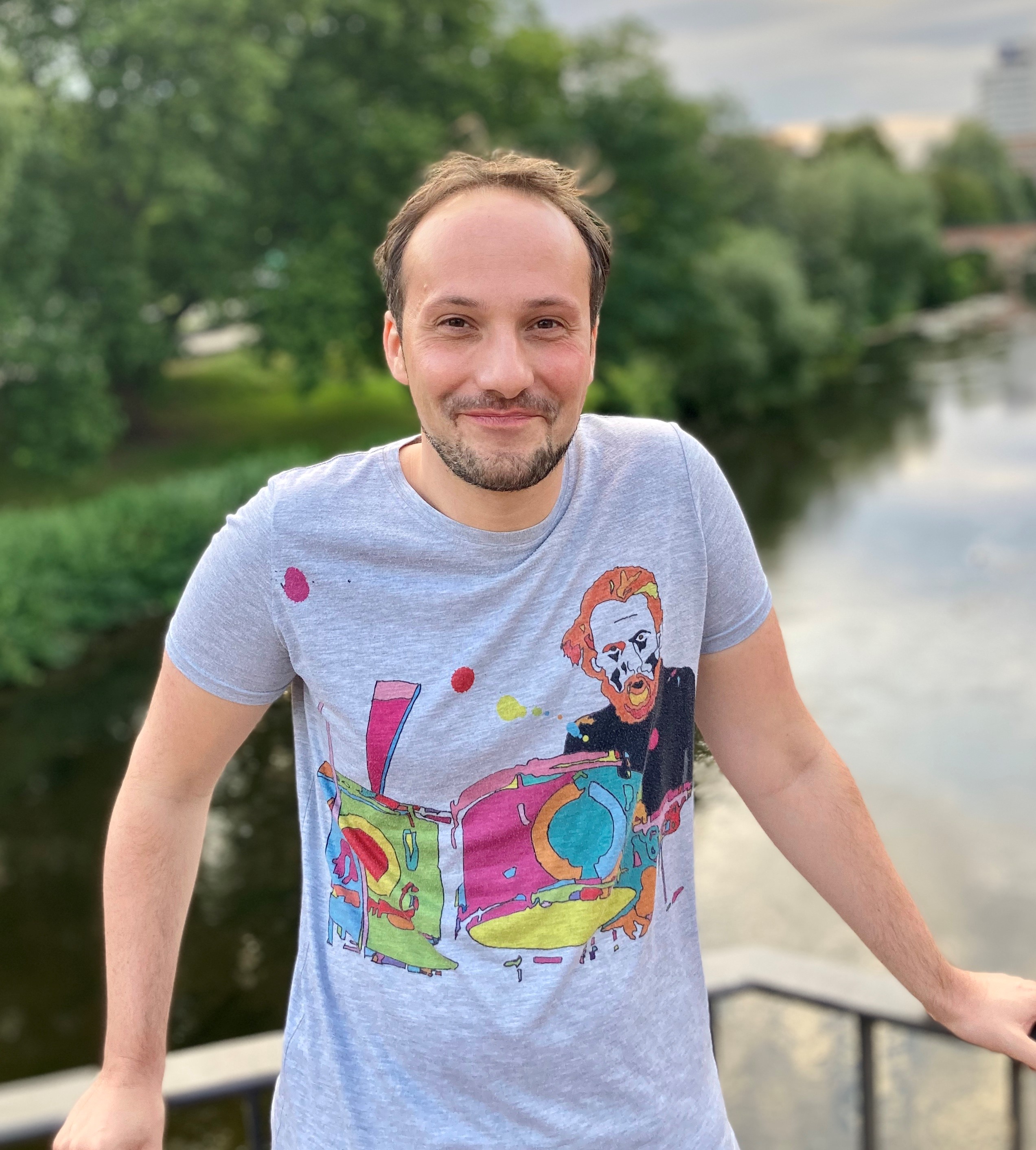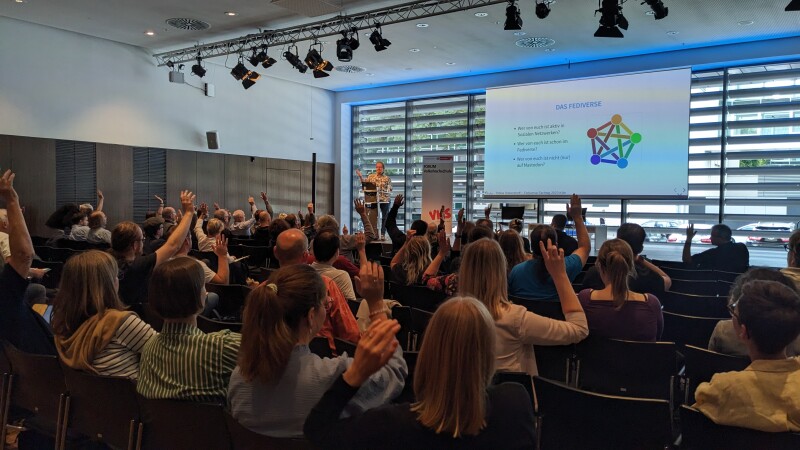Frank Karlitschek receives the European SFS Award at SFSCON23
vendredi 10 novembre 2023 à 00:00Frank Karlitschek receives the European SFS Award at SFSCON23
The founder of Nextcloud received the European SFS Award at SFSCON. This recognition which was presented for the first time jointly by the Linux User Group Bolzano and the Free Software Foundation Europe, went to "a tireless advocate of digital freedom as universal right".

"He is not only a talented technologist, but also a tireless advocate of digital freedom as a universal right". With these words, the European SFS Award was presented to Nextcloud founder Frank Karlitschek today, 10 November, at SFSCON 2023. This is the first time that the well-established SFS Award has been extended to the European level, a joint collaboration with the initiators of this recognition, the Linux User Group BZ (LUGBZ) and the Free Software Foundation Europe (FSFE).
More than two decades ago, Frank Karlitschek founded the community website KDE-Look.org, then GNOME-look.org and finally openDesktop.org to improve Free Software. In 2010, with the ownCloud project, the Stuttgart-based Free Software developer laid the foundation for a platform that allows people to store their data securely and independently. This led to the launch of Nextcloud in 2016.
Today, Nextcloud is a Free Software collaboration tool used by millions worldwide "and which some of the biggest technology companies around the world fear as a competitor", as Matthias Kirschner, FSFE president, pointed out during the Award ceremony. Kirschner further noted that “even in situations where he could have personally or with his company benefited financially, he decided to follow his principles and ensure that there is a fair level playing field for others in our community as well".
He[Karlitschek] followed his ideals and his strong believe that users should have the rights to use, understand, share, and improve their software—and created a comprehensive, user-friendly and secure collaboration platform, added Rafael Barbieri, LUGBZ member.
In his thank you speech, Karlitschek said he can just accept the award in the name for the Nextcloud community, the ones that really deserve this recognition.
The European SFS Award
The first SFS Award was presented to Hugo Leiter in 2004 at the SFSCON South Tyrol Free Software Conference for the implementation of Libre Office in all municipalities of South Tyrol. Twenty years later, at the start of the SFSCON at the NOI Techpark, the award was presented for the first time on a European level. The Free Software Foundation Europe teamed up with the initiator of the award, LUGBZ, to jointly honour Free Software developers who have made outstanding contributions to the dissemination and promotion of Free Software in Europe.
2023 Laudatio
Rafael: It’s an honour for me (on behalf of the Board of Linux User Group Bozen-Bolzano-Bulsan) to present the first European SFS Award, continuing a twenty year old tradition, since the first SFS Award was assigned in 2004 to Hugo Leiter, for introducing Libre Office in all municipalities of South Tyrol. Traditionally the AWARD has always been given to someone who greatly contributed to the culture of Free Software in South Tyrol, and this tradition will continue, but as SFSCON this year we extended the narrative to the essential European level. LUGBZ, promoting digital sustainability in South Tyrol, joined forces with an important European association active in the sphere of Free Software, namely the Free Software Foundation Europe (FSFE). Let me introduce the president: Matthias Kirchner.
Matthias: Thank you Raphael! As the FSFE we have now participated many years at the SFSCON, and saw how the LUGBZ was awarding great Free Software contributors from Italy – so we were happy when we have been approached to join forces and award European Free Software contributors together with the LUGBZ.
Raphael: As in previous years, we received many nominations for potential winners. It was not easy for us to choose a winner, since many of the suggested candidates made enormous contribution to Free Software.
Matthias: The deciding factor for us this year was to choose a European who lives the values of software freedom, a person who has dedicated decades of work to software freedom and brought it to the next level, a true visionary and pioneer of software freedom.
Raphael: In 2001, over two decades ago, he started KDE-Look.org, later GNOME-look.org, as well as openDesktop.org to improve Free Software, and supported many initiatives in our field, including serving as Vice President of KDE e.V.
In 2010 at Akademy he laid the foundations for a platform that enabled millions of people to store their data securely and self-determined on servers. He promoted Open Standards, and inspired people to join the movement for software freedom.
With the development of a remote collaboration tool for teams, which is developed under the freedom protecting GNU AGPL license, he followed his ideals and his strong believe that users should have the rights to use, understand, share, and improve their software – and created a comprehensive, user-friendly and secure collaboration platform.
Matthias: His tireless commitment to software freedom has resulted in a Free Software product which some of the biggest technology companies around the world fear as a competitor.
Even in situations where he could have personally or with his company benefited financially, he decided to follow his principles and ensure that there is a fair level playing field for others in our community as well.
Raphael: He is not only a gifted technologist, but also a champion of the idea of digital freedom as a universal right. With his work he lives the ideals of transparency, privacy, and individual control over digital information, but he also laid the foundation for a diverse and engaged community.
Matthias: His dedication, his vision, and his strong principles enriched and inspired many in our community. We are deeply grateful for his contributions and look forward to a future he helps shape.
For these reasons, we hereby award Frank Karlitschek, the founder of Nextcloud, the European SFS Award 2023.

 The book 'Ada & Zangemann' will be available to buy for the first time in Italian at SFSCON.
The book 'Ada & Zangemann' will be available to buy for the first time in Italian at SFSCON.
 Use SFSCON sharepic generator to get your personal image! Generate your unique picture here:
Use SFSCON sharepic generator to get your personal image! Generate your unique picture here: 


